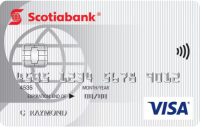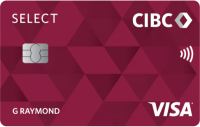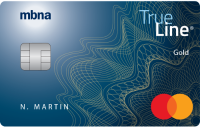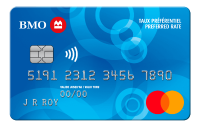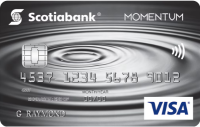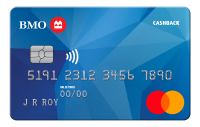A balance transfer can be a valuable tool for managing credit card debt more effectively.
The Borrowell Team
Feb 18, 2025
Read More
Managing high-interest credit card debt can feel like an uphill battle. Luckily, balance transfer credit cards can help you take back control of your finances and get out of debt. With low introductory interest rates, these cards let you transfer over your existing credit card balances and pay down your debt more quickly.
In 2026, Canadians have access to a wide range of balance transfer credit cards designed to promote flexibility and savings. Whether you’re simply looking to consolidate your debt or to find a card with more benefits and rewards, choosing the right card can make a world of difference.
In this article, we’ve rounded up the best balance transfer credit cards in Canada for 2026. From low fees to extended introductory offers, these options can help you reduce your monthly interest costs and get closer to financial freedom. Read on to find the card that might be right for you!
And remember, if you browse for cards in the Borrowell app, we'll tell you your chances of getting approved for each credit card before you apply, based on your unique credit profile.
A balance transfer credit card allows you to save money by consolidating high-interest debt onto a card with a low or 0% introductory rate. This gives you the chance to pay down your debt faster (without accruing as much interest) and reset your finances. Further, many balance transfer credit cards offer flexible repayment terms and relatively low fees, making them ideal for reducing debt and improving your financial health.
Selecting the right balance transfer credit card is critical for paying off your credit card debt more quickly. Here are a few things to consider when choosing a balance transfer credit card:
Look for the lowest promotional interest rate and longest promotional period: Choose a card that offers the longest possible 0% or low-interest rate on balance transfers. The longer this period is, the more time you’ll have to pay off your debt without accruing high interest.
Be mindful of the balance transfer fee: Most cards charge a fee (typically 1-3%) on the amount you transfer. Be sure to factor this fee into your calculations to ensure the card’s value justifies its cost.
Check the ongoing interest rate after the promotional period: Be sure you know what the interest rate will be once the promotional period ends, and make sure it’s not noticeably higher than other options.
Calculate potential savings: Use a credit card calculator such as this one from MBNA to estimate how much you could save on interest with a balance transfer card compared to your current credit card(s). This can help you determine if the card’s benefits outweigh any balance transfer or annual fees.
When you browse for credit cards in the Borrowell app, we'll tell you your chance of getting approved, based on your unique credit profile.
When choosing a balance transfer credit card, here are some features to look for:
Introductory Annual Percentage Rate (APR) period: You’ll want to look for the card with the longest 0% APR duration on balance transfers.
Balance transfer fees: Be aware of the balance transfer fees (usually a percentage of the transferred amount).
Post-Intro APR: Make sure you know what the APR on your card is after the introductory 0% period is over.
Credit limit: Be certain that the card’s limit is sufficient to accommodate the amount you wish to transfer.
Additional perks: Although balance transfer credit cards are not the ideal card type for benefits, rewards, etc., some of them do offer such perks.
| Credit Card | Introductory Balance Transfer Interest Rate (APR) | Introductory Period Length | Balance Transfer Fee | Post-Introductory Period Balance Transfer Interest Rate (APR) | Annual Fee | |
|---|---|---|---|---|---|---|
| Scotiabank Value® Visa Card | 0.99% | 9 months | 2% | 13.99% | $29.00 | |
| Credit Card Scotiabank Value® Visa Card | Introductory Balance Transfer Interest Rate (APR) 0.99% | Introductory Period Length 9 months | Balance Transfer Fee 2% | Post-Introductory Period Balance Transfer Interest Rate (APR) 13.99% | Annual Fee $29.00 | |
| CIBC Select Visa Card | 0% | 10 months | 1% | 13.99% | $29.00 | |
| Credit Card CIBC Select Visa Card | Introductory Balance Transfer Interest Rate (APR) 0% | Introductory Period Length 10 months | Balance Transfer Fee 1% | Post-Introductory Period Balance Transfer Interest Rate (APR) 13.99% | Annual Fee $29.00 | |
| Borrowell Exclusive MBNA True Line® Mastercard® | 0.99% | 15 months | 3% | 17.99% | $0 | |
| Credit Card Borrowell Exclusive MBNA True Line® Mastercard® | Introductory Balance Transfer Interest Rate (APR) 0.99% | Introductory Period Length 15 months | Balance Transfer Fee 3% | Post-Introductory Period Balance Transfer Interest Rate (APR) 17.99% | Annual Fee $0 | |
| BMO Preferred Rate Mastercard® | 2% | 9 months | 0.99% | 15.99% | $29 | |
| Credit Card BMO Preferred Rate Mastercard® | Introductory Balance Transfer Interest Rate (APR) 2% | Introductory Period Length 9 months | Balance Transfer Fee 0.99% | Post-Introductory Period Balance Transfer Interest Rate (APR) 15.99% | Annual Fee $29 | |
| Scotia Momentum No-Fee Visa Card | 0% | 6 months | 2% | 22.99% | $0 | |
| Credit Card Scotia Momentum No-Fee Visa Card | Introductory Balance Transfer Interest Rate (APR) 0% | Introductory Period Length 6 months | Balance Transfer Fee 2% | Post-Introductory Period Balance Transfer Interest Rate (APR) 22.99% | Annual Fee $0 | |
| BMO Cash Back® Mastercard® | 0.99% | 9 months | 2% | 21.99% | 23.99% | $0 |
| Credit Card BMO Cash Back® Mastercard® | Introductory Balance Transfer Interest Rate (APR) 0.99% | Introductory Period Length 9 months | Balance Transfer Fee 2% | Post-Introductory Period Balance Transfer Interest Rate (APR) 21.99% | Annual Fee 23.99% | $0 |
Based on our research, here are the best balance transfer credit cards in Canada in 2026. We ranked the cards using the following criteria:
Introductory APR period: How long is 0% or low APR available on balance transfers
Balance transfer fees: Lower fees are scored higher
Ongoing APR: Lower post-introductory APRs indicate long-term affordability
Annual fees: Cards with low or no annual fees scored better
Minimum income requirements: If balance transfer fees and other APRs were comparable, we took into account whether a card had a minimum income requirement, and, if so, how much
Rewards and perks: If balance transfer fees and other APRs were comparable, we took into account any additional benefits offered
Introductory balance transfer interest rate: 0.99%
Introductory period length: 9 months
Balance transfer fee: 2% (minimum $5)
Purchase interest rate: 13.99%
Cash advance interest rate: 13.99%
Balance transfer interest rate: 13.99%
Annual fee: $29.00
No fee for additional cardholders
Low APR rate of 13.99% across the board
Annual fee waived in first year
Available across Canada, including Quebec
No rewards
No insurance coverage included
Minimum income requirement of $12,000
With some of the lowest APRs across the board for any balance transfer credit card, the Scotiabank Value® Visa Card also has a competitive introductory balance transfer rate of 0.99% for the first nine months and a low transfer fee of 2%. Moreover, the $29.00 annual fee is waived in the first year. The relatively low APR makes it particularly suited for those who do not pay their monthly balance down in full each month. However, it does not include any rewards or insurance coverage, and after the first year, you’ll be paying $29.00 annually. There’s also a minimum income requirement of $12,000.
Visit the Scotiabank website to apply.
Introductory balance transfer interest rate: 0%
Introductory period length: 10 months
Balance transfer fee: 1%
Purchase interest rate: 13.99%
Cash advance interest rate: 13.99%
Balance transfer interest rate: 13.99%
Annual fee: $29.00
No fee for additional cardholders
Across the board low APR rate of 13.99%
Annual fee waived in the first two years
Available across Canada, including Quebec
No rewards
No insurance coverage included
Minimum annual income requirement of $15,000
With low APRs across categories, the CIBC Select Visa’s low annual fee and attractive welcome bonus make this one of the best balance transfer credit cards available in Canada. You can also get up to three secondary cards at no additional cost. However, you do need a minimum annual income of $15,000, and it doesn’t include rewards or insurance coverage.
Visit the CIBC website to apply.
Introductory balance transfer interest rate: 0.99%
Introductory period length: 15 months
Balance transfer fee: 3%
Purchase interest rate: 12.99%
Cash advance interest rate: 24.99%
Balance transfer interest rate: 17.99%
Annual fee: None
Use available credit on your credit card to transfer funds right to your chequing account
MBNA Payment plan enables you to make fixed payments
Add up to 9 authorized users for no additional annual fee
Low purchase interest rate
Attractive welcome offer
No rewards
No insurance coverage included
Not available to residents of Quebec
The Borrowell Exclusive MBNA True Line® Mastercard® stands out for its extremely generous welcome offer: a 0.99% promotional annual interest rate (“AIR”) for 15 months on balance transfers completed within 90 days of account opening, with a 3% transfer fee. As the name suggests, this special welcome offer is only available to Borrowell members. This card also has a relatively low Purchase Interest Rate of 12.99%. However, it’s important to note that the MBNA True Line® Mastercard® offers few perks or rewards, and it’s not available to residents of Quebec.
Log in to Borrowell to get this exclusive offer.
Introductory balance transfer interest rate: 0.99%
Introductory period length: 9 months
Balance transfer fee: 2%
Purchase interest rate: 13.99%
Cash advance interest rate: 15.99%
Balance transfer interest rate: 15.99%
Annual fee: $29.00
Up to seven cents off per litre on Shell®± fuel, only for BMO cardholders
Free extended warranty and purchase protection
Zero Dollar Liability keeps you protected from fraudulent use of your credit card
Attractive introductory balance transfer offer
Annual fee waived for the first year
Available across Canada, including Quebec
No rewards
Annual fee of $29 after the first year
The BMO Preferred Rate Mastercard offers a generous 0.99% introductory interest rate on balance transfers for the first 9 months, plus a 2% balance transfer fee. Moreover, the $29 annual fee is waived for the first year. You’ll also receive extended warranty, purchase protection and BMO’s Zero Dollar Liability. Once the welcome offer expires, the balance transfer rate goes to 15.99%. There are also no rewards programs associated with this card.
Visit the BMO website to apply.
Introductory balance transfer interest rate: 0%
Introductory period length: 6 months
Balance transfer fee: 2%
Purchase interest rate: 19.99%
Cash advance interest rate: 22.99%
Balance transfer interest rate: 22.99%
Annual fee: None
Earn cash back on everyday purchases
Attractive welcome offer
Earn cash back rewards
No annual fee
Available across Canada, including Quebec
Higher standard interest rates than other cards on our list
You can’t transfer a balance from another Scotiabank account during the promotional period
The Scotiabank Momentum No-Fee Visa Card offers an attractive introductory 0% balance transfer rate for the first 6 months, a 2% transfer fee, and no annual fee. Coupled with a cash back program for everyday purchases (5% on eligible purchases in the first 3 months, then 0.5% - 1% after that), this is a great no-frills card that can help you pay down your debt and accrue cash back. The main downside of this card is the relatively high APRs across the board, which can add up if you don’t pay your balance in full each month.
Visit the Scotiabank website to apply.
Introductory balance transfer interest rate: 0.99%
Introductory period length: 9 months
Balance transfer fee: 2%
Purchase interest rate: 21.99%
Cash advance interest rate: 23.99%
Balance transfer interest rate: 23.99%
Annual fee: None
3% cash back on grocery purchases; 1% cash back on recurring bill payments; 0.5% cash back on all other purchases
Attractive welcome offer
No minimum threshold to redeem cash-back rewards
No annual fee
Available across Canada, including Quebec
After the introductory offer expires, APRs are relatively high
The BMO Cashback Mastercard offers a 0.99% introductory interest rate on balance transfers for the first 9 months and a 2% balance transfer fee, as well as 5% cash back during your first 3 months. As with the other BMO cards referenced in this article, though, once the introductory period has expired, APRs are relatively high across the board, so you’ll want to be sure you can pay your balance off in the first 9 months. Also, the higher cash back earn rates for groceries and recurring bill payments are capped at $500 per billing cycle.
Visit the BMO website to apply.
Sign up to compare the best credit cards based on your unique credit profile.
Balance transfer credit cards can be an effective way to pay off your existing debt, helping you attain financial freedom more quickly. By being disciplined and taking full advantage of low or no introductory interest rates, you’ll be able to focus on paying down your principal balance without high interest costs.
When choosing the balance transfer card that’s right for you, consider factors such as the length of the promotional/introductory period and the APRs after it ends. While some cards come with perks like cash-back rewards or Air Miles, remember that the primary purpose of a balance transfer card is to help you pay down your high-interest debt.
A balance transfer lets you move debt from a high-interest credit card to a new card with a low or 0% promotional interest rate for a set period of time. Once you are approved for the new card, you request the transfer and your new issuer pays off the old balance and moves it to the new account.
Most cards charge a balance transfer fee (typically 1%–3% of the transferred amount), but even with this cost, the interest savings can be significant — especially if you’re carrying a large balance and can pay it down during the promo period.
A balance transfer can impact your credit score negatively in the short term, but it can help in the long run if managed well.
Applying for a new card results in a hard inquiry, which can cause a small, temporary drop in your score. That's why if you browse for credit cards in the Borrowell app, we'll show you your approval chances for each credit card, based on your unique credit profile, so you can make an informed decision before you apply.
Your credit utilization may also change depending on your limits and how much you transfer, leading to slight fluctuations in your credit score.
If you use the lower interest period to pay down your debt, your score can improve thanks to lower balances and on-time payments. However, if you don’t pay off the balance before the promo ends, higher interest charges can make debt more complicated to manage and negatively impact your credit.
Yes, most issuers allow you to transfer balances from multiple cards, as long as the total amount stays within your new card’s credit limit.
Keep in mind that some issuers may place limits on how many transfers you can make, and each transfer may incur its own fee, so be sure to check the terms before proceeding.
Trusted by over 3 million Canadians, Borrowell provides free weekly credit scores and report monitoring, personalized financial product recommendations and affordable tools to help you build your credit. Sign up for your free Borrowell account today on borrowell.com, or download the mobile app for Android or iOS.
A balance transfer can be a valuable tool for managing credit card debt more effectively.
The Borrowell Team
Feb 18, 2025
Read More
Here’s everything you need to know about the dos and don'ts of using a balance transfer credit card, so you can decide if it’s right for you.
Jessica Martel
Feb 28, 2025
Read More
Looking to save on interest? Our new guide reveals the best low interest credit cards for 2025 so you can keep more money in your pocket.
The Borrowell Team
May 26, 2025
Read More
Most credit card issuers will let you apply for a card online, and you'll usually know whether or not you're approved within minutes. Here are the basic steps for applying for a credit card in Canada:
Have a thorough read of the card’s details to ensure it suits your needs and that you meet the eligibility requirements.
Fill out the application form. You'll typically be asked for details such as your full name, date of birth, employment details, home address and Social Insurance Number.
Review your application carefully to make sure all the information you've provided is accurate.
Submit your application to the card issuer.
Credit card interest is the cost of borrowing money from the credit card issuer. In Canada, credit card interest rates are typically expressed as an annual percentage rate (APR), representing the total cost of borrowing over a year.
Credit card issuers give a grace period to pay for your previous month’s purchases without interest. The grace period begins on the last day of your billing period. However, this grace period doesn’t apply to cash advances or balance transfers. On those transaction types, you'll start accruing interest right away.
If you don't pay off your balance in full before the end of the interest-free grace period, you'll start accruing interest.
Find out more about how credit card interest works in Canada on our blog.
While the average Canadian has between 1-2 credit cards, there’s no hard and fast rule for how many credit cards a person should have, and there are pros and cons to having several cards.
As long as you manage your credit cards responsibly and make your payments on time, there’s nothing wrong with having multiple credit cards. In fact, if you use credit strategically, holding multiple cards can help you capitalize on rewards programs, improve your credit to debt ratio, and offer a safety net for emergency purchases.
However, if you’re not thoughtful about which credit cards you apply for or how you use them, you may wind up paying excessive annual fees, and you could even harm your credit score if you don’t manage your accounts well.
Ultimately, it’s up to you to determine how many cards you can reasonably manage based on your income, spending habits, and goals.
Your credit score directly impacts the types of credit cards you can qualify for. Higher credit scores often mean better credit card perks, higher credit limits, and a greater selection of credit card lenders to choose from.
Generally, consumers with credit scores below 660 may find it harder to qualify for premium cards and may only qualify for a limited selection of general credit cards with lower credit limits. Consumers with credit scores higher than 660 are typically eligible for credit cards with increased limits and additional perks, such as travel points or high cashback rates.
Applying for a new credit card can affect your credit score. This is because a hard credit inquiry is usually required when you apply for a credit card. A hard credit inquiry is when a potential lender checks your credit report to help them decide whether to approve your application for a credit product. Any time a hard inquiry is performed, it can potentially lower your credit score by a few points. For this reason, it's a good idea not to apply for too many credit products at once.
That being said, if you manage your credit well by making your payments on time and keeping your credit utilization below 30%, your credit will likely recover quickly and even improve further over time.
Credit card churning is the process of opening cards purely to take advantage of the welcome bonus or other perks. Often, it involves closing the card after the bonus period and before the next annual fee is charged.
Credit card churning can have a negative effect on your credit score depending on how many credit cards you're applying for over what period of time. This is for a number of reasons. Firstly, whenever you apply for a credit product, the issuer will run a hard inquiry on your credit report, which can have a small negative effect. If you're applying for multiple credit cards at once, this negative effect can add up.
Secondly, credit card churning typically involves closing credit cards at the end of the bonus period, and closing credit cards can affect your credit score negatively as it "wipes out" the good credit you build up with that card, like the credit history and payment history. It will also increase your credit utilization by reducing the amount of credit you have available, which in turn increases the proportion on credit that you're using.
We conducted an in-depth review of Canada’s top balance transfer credit cards and ranked them based on the criteria below. Our goal is to help Canadians find cards that can meaningfully reduce interest costs and make it easier to pay off debt faster.
Introductory APR Period
The length of the promotional balance transfer period is one of the most important factors for anyone looking to consolidate debt. Cards offering 0% or very low promotional interest rates for longer periods scored higher, as they give cardholders more time to pay down their balance without accumulating additional interest.
Balance Transfer Fees
We evaluated the balance transfer fee charged during the promotional period. Cards with lower fees scored higher, as this directly affects the upfront cost of transferring your balance.
Ongoing APR
Once the introductory period ends, the regular interest rate applies. We compared ongoing APRs across cards and gave higher scores to those with lower long-term rates, as these can make a big difference if any balance remains after the promotional period.
Annual Fees
We compared each card’s annual fee and rewarded cards with low or no annual fees. Since balance transfer cards are primarily used to save on interest, affordability is a key factor.
Minimum Income Requirements
Where cards had similar promotional APRs, fees, and features, we considered minimum income requirements. Cards with lower or no stated minimum income thresholds scored higher, as they are more accessible to more Canadians.
Rewards and Perks
While balance transfer cards are typically chosen for their promotional interest rates, we also recognized additional value where applicable. If two cards were comparable in terms of APR and fees, we considered rewards programs, insurance coverage, and extra perks as tie-breakers.
